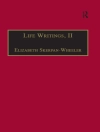European exploration and conquest expanded exponentially in the late fifteenth and sixteenth centuries, and as the horizons of imperial experience grew more distant, strategies designed to convey the act of witnessing came to be a key source of textual authority. From the relación to the captivity narrative, the Hispanic imperial project relied heavily on the first-person authority of genres whose authenticity undergirded the ideological armature of national consolidation, expansion, and conquest. At the same time, increasing pressures for religious conformity in Spain, as across Europe, required subjects to bare themselves before external authorities in intimate confessions of their faith. Emerging from this charged context, the unreliable voice of the pícaro poses a rhetorical challenge to the authority of the witness, destabilizing the possibility of trustworthy representation precisely because of his or her intimate involvement in the narrative.
In Knowing Fictions, Barbara Fuchs seeks at once to rethink the category of the picaresque while firmly centering it once more in the early modern Hispanic world from which it emerged. Venturing beyond the traditional picaresque canon, Fuchs traces Mediterranean itineraries of diaspora, captivity, and imperial rivalry in a corpus of texts that employ picaresque conventions to contest narrative authority. By engaging the picaresque not just as a genre with more or less strictly defined boundaries, but as a set of literary strategies that interrogate the mechanisms of truth-telling itself, Fuchs shows how self-consciously fictional picaresque texts effectively encouraged readers to adopt a critical stance toward the truth claims implicit in the forms of authoritative discourse proliferating in Imperial Spain.
Table des matières
Introduction
Chapter 1. Imperial Picaresques: La Lozana Andaluza and Spanish Rome
Chapter 2. Picaresque Captivity: The Viaje de Turquía and its Cervantine Iterations
Chapter 3. ‘O Te Digo Verdades o Mentiras’: Crediting the Pícaro in Guzmán de Alfarache
Chapter 4. Cervantes’ Skeptical Picaresques and the Pact of Fictionality
Postscript. The Fact of Fiction
Notes
Bibliography
Index
Acknowledgments
A propos de l’auteur
Barbara Fuchs is Professor of Spanish and English at the University of California, Los Angeles. Her books include The Poetics of Piracy: Emulating Spain in English Literature and Exotic Nation: Maurophilia and the Construction of Early Modern Spain, as well as the translations ‘The Abencerraje’ and ‘Ozmin and Daraja’: Two Sixteenth-Century Novellas from Spain and Cervantes’s ‘The Bagnios of Algiers’ and ‘The Great Sultana’: Two Plays of Captivity, all of which are available from the University of Pennsylvania Press.












